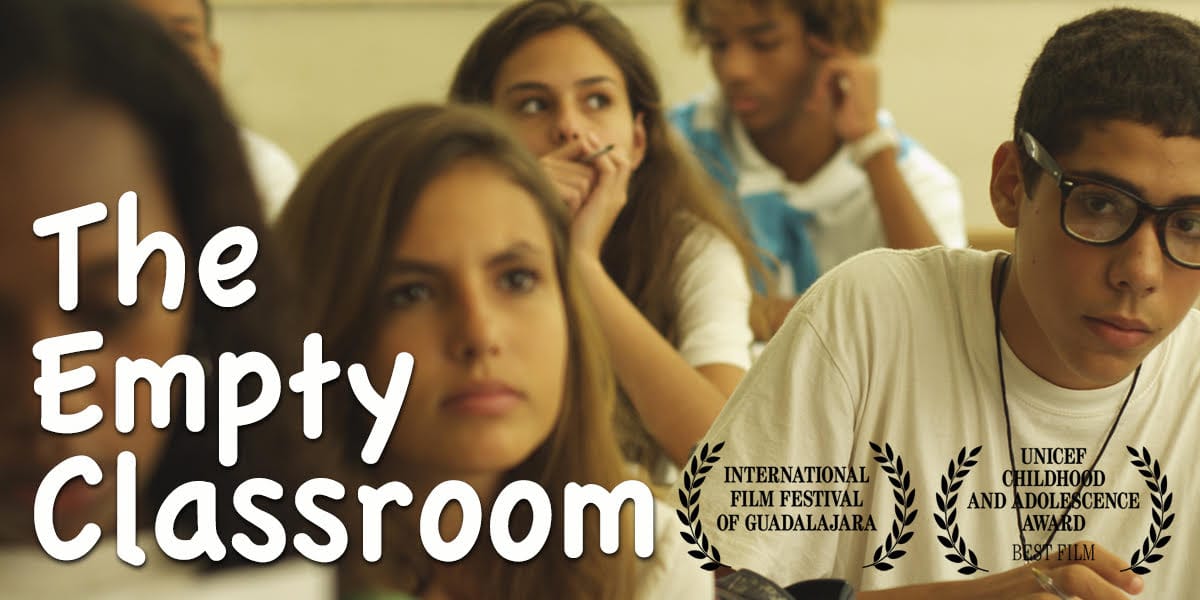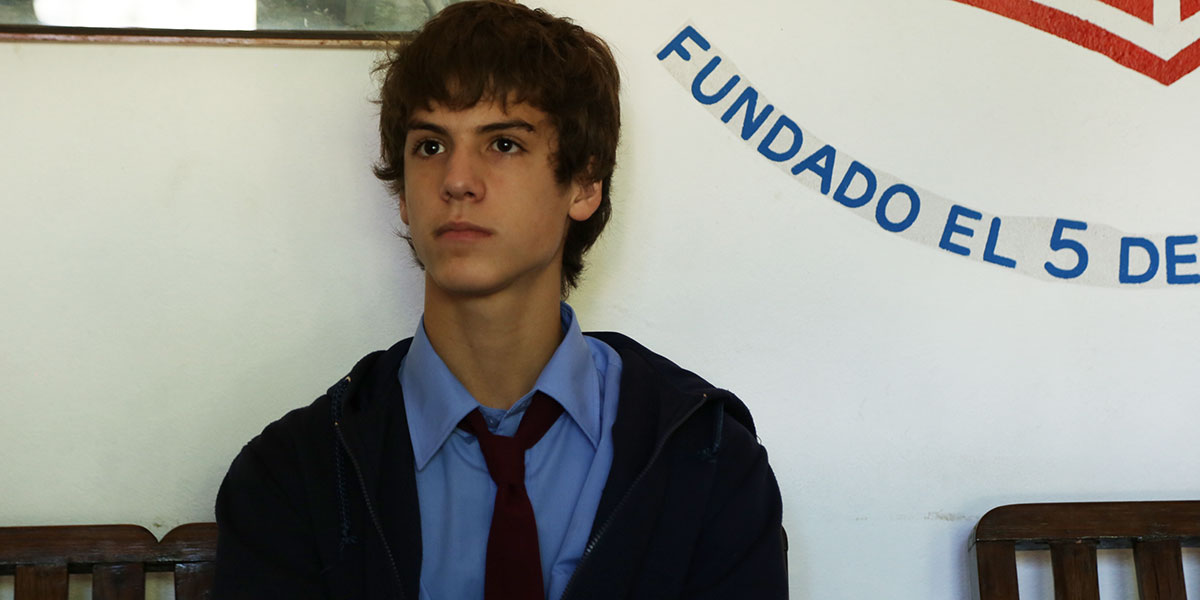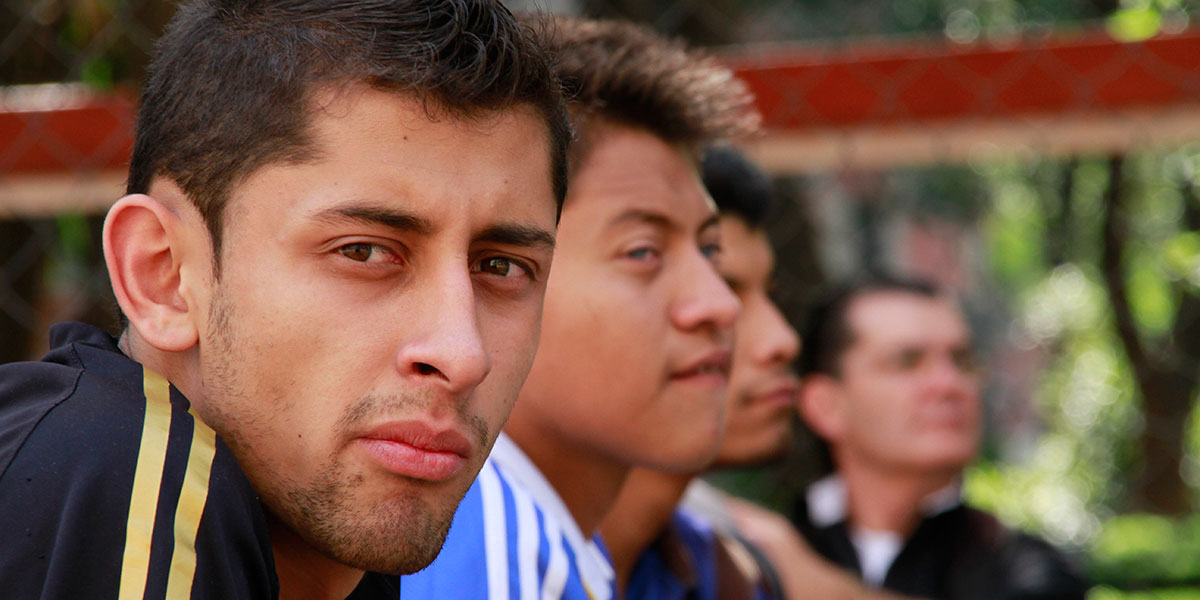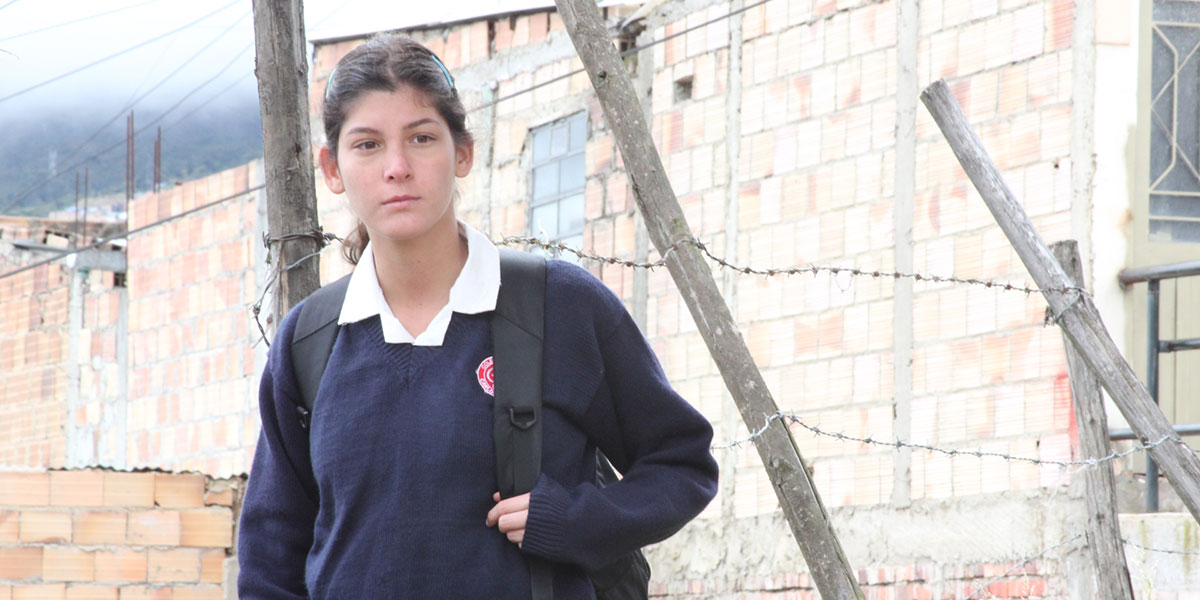The Empty Classroom
(El Aula Vacía)
multiple directors / Argentina, Brazil, Colombia, Mexico, Peru, Uruguay, El Salvador / 2015 / 111 min




International Film Festival of Guadalajara
UNICEF Childhood and Adolescence award
Best FilmBAFICI, Buenos Aires Independent Film Festival
AFI Latin American Film Festival
Punta del Este International Film Festival, Uruguay
Rio de Janeiro International Film Festival
Havana Film Festival
eduFILM at SXSWedu
Malaga Film Festival
Spanish Film Club
Related Films
 El Amparo(El Amparo)Rober CalzadillaIn the Venezuelan town of El Amparo, near the border with Colombia, a group of fishermen sets off down the Aruca River. But only two men return, their ...
El Amparo(El Amparo)Rober CalzadillaIn the Venezuelan town of El Amparo, near the border with Colombia, a group of fishermen sets off down the Aruca River. But only two men return, their ... The Companion(El Acompañante)Pavel GiroudStudy Guide Available. CUBA’S OFFICIAL ENTRY TO THE ACADEMY AWARDS® Set in 1988 Cuba as the government dispatched HIV patients to AIDS centers ...
The Companion(El Acompañante)Pavel GiroudStudy Guide Available. CUBA’S OFFICIAL ENTRY TO THE ACADEMY AWARDS® Set in 1988 Cuba as the government dispatched HIV patients to AIDS centers ... Sealed Cargo(Carga Sellada)Julia Vargas WeiseBOLIVIA’S OFFICIAL ENTRY TO THE ACADEMY AWARDS® With a promotion in the offering and his beautiful wife Nena at his side, things couldn’t ...
Sealed Cargo(Carga Sellada)Julia Vargas WeiseBOLIVIA’S OFFICIAL ENTRY TO THE ACADEMY AWARDS® With a promotion in the offering and his beautiful wife Nena at his side, things couldn’t ... Panama Canal Stories(Historias del Canal)Abner Benaim, Carolina Borrero, Luis Franco Brantley, Pinky Mon, Pituka Ortega-HeilbronThis impressive, sweeping historical drama chronicles five incredible stories of people who helped build the famous canal and Panama itself. Spanning a ...
Panama Canal Stories(Historias del Canal)Abner Benaim, Carolina Borrero, Luis Franco Brantley, Pinky Mon, Pituka Ortega-HeilbronThis impressive, sweeping historical drama chronicles five incredible stories of people who helped build the famous canal and Panama itself. Spanning a ... From the Land to Your Table(¿Qué Culpa Tiene el Tomate?)Jorge Coira, Alejo Hoijman, Josué Méndez, Marcos Loayza Montoya, Carolina Navas, Alejandra Szeplaki, Paola VieiraSeven countries, seven popular markets, seven cultures. The first documentary of its kind, From the Land to Your Table shows the perspectives of seven ...
From the Land to Your Table(¿Qué Culpa Tiene el Tomate?)Jorge Coira, Alejo Hoijman, Josué Méndez, Marcos Loayza Montoya, Carolina Navas, Alejandra Szeplaki, Paola VieiraSeven countries, seven popular markets, seven cultures. The first documentary of its kind, From the Land to Your Table shows the perspectives of seven ...Synopsis
In Spanish and Portuguese with English subtitles - Spanish language audio description available *
Directed by Carlos Gaviria, Daniel and Diego Vega, Eryk Rocha, Lucrecia Martel, Mariana Chenillo, Nicolas Pereda, Pablo Fendrik, Pablo Stoll Ward, Tatiana Huezo.
Nearly half of all young people in Latin America never finish high school. To explore this dropout crisis, creative director Gael García Bernal gathered 11 award-winning filmmakers who have created a captivating anthology of short films, both narrative and documentary. There is no easy solution to this complex issue, and each short delves into the underlying reasons, from poverty to societal traditions, that students aren’t graduating.
This omnibus features films by multi awarded filmmakers Argentina’s Lucrecia Martel (The Headless Woman) and Pablo Fendrik (Ardor), El Salvador’s Tatiana Huezo (The Tiniest Place), Mexico’s Mariana Chenillo (Pragda’s own Paradise) and Nicolas Pereda (Greatest Hits), Peru’s Daniel and Diego Vega (The Mute), Uruguay’s Pablo Stoll (Whiskey), Brazil’s Eryk Rocha (Cinema Novo) and Flavia Castro (Diaries, Letters, Revolutions), Colombia’s Carlos Gaviria (Potraits in a Sea of Lies).
Among many issues, the short films explore the links between the dropout crisis and violence; how to identify students at risk of dropping out of school in Latin America; the lack of interest in school that is preventing students from graduating; school exclusion in indigenous communities; the not-so-typical challenges to finishing high school faced by a deaf student; the relationship between the financial cost to staying in school and its benefits; and what happens when drop out students want to go back.
* Spanish language audio description available via All4Access App and/or .wav file when purchasing a DSL license.
Accessibility for these films was created by DICAPTA and funded under a grant from the U.S. Department of Education- Office of Special Education-OSEP, project “Enhanced Access to Video for Students with Sensory Disabilities through Emerging Technology,” TV Access H327C210001.
Related Subjects
About the Director
Carlos Gaviria directed the award-winning documentary 500 segundos: Los niños de las Américas (500 Seconds: The Children of the Americas), which was shown on over 250 television stations around the world. In 2010, Gaviria finished Retratos en un mar de mentiras (Potraits in a Sea of Lies), which went on to become the most award-winning Colombian film.
Brothers Daniel and Diego Vega burst onto the film scene with October, which won the Jury Prize at the 2010 Cannes Film Festival. Their second feature, El Mudo (The Mute), was invited to participate in L’Atelier program of the Cannes Film Festival in 2011 and won the award for Best Director at BAFICI.
Eryk Rocha was born in Brasilia. Since the successful debut of his first feature-length film, Rocha que voa (Stones in the Sky, 2002), his movies have been screened at film festivals all over the world.
Brazilian director Flavia Castro has won 14 national and international film awards since the successful debut of Diario de uma busca (Diaries, Letters, Revolutions). She is currently working on her next feature film, Joana.
Lucrecia Martel‘s films La niña santa (The Holy Girl) and La mujer sin cabeza (The Headless Woman) competed at the Cannes Film Festival; a festival where she also participated as a judge in 2006.
Mariana Chenillo has won the award for Best Director at the 31st Moscow International Film Festival. Her most recent film, Paraíso (Paradise) was screened at the 2013 Toronto Film Festival, as well as San Sebastian, Morelia, and Rio de Janeiro among others.
Nicolas Pereda’s films have been screened at some of the most prestigious film festivals in the world including Cannes, Venice, Rotterdam, Oberhausen, Vienna, and Edinburgh.
Argentine writer and director Pablo Fendrik has presented his award-winning films The Mugger (El asaltante) and Blood Appears (La sangre brota) in the Critics’ Week at the Cannes Film Festival. His latest film, El ardor, premiered at the 2014 Cannes Film Festival.
Uruguayan filmmaker Pablo Stoll Ward wrote and directed award-winning film Whisky (2004) which was released commercially in over 25 countries. His film 3 was released in the Directors’ Fortnight at the Cannes Film Festival in 2012.
Born in 1972 in El Salvador, Tatiana Huezo moved to Mexico City at age five. A graduate of the prestigious Centro de Capacitación Cinematográfica (CCC), she’s the recipient of the Gucci/Ambulante award, a grant established in 2007 to support new and established Mexican documentarians. Huezo has taught documentary film at the University Pompeu Fabra in Barcelona. The Tiniest Place (2011) was her first feature-length documentary, followed by Tempestad (2016).
Press
“With connective narration by actor Gael García Bernal, who also served as creative director of the project, this is an engaging if also somewhat scattershot overview of problems affecting graduation rates throughout Latin America today. A strong optional purchase.” – F. Swietek, Video Librarian
“This important film tells the story of the educational crisis in Latin America, showcased by young Latin American filmmakers.” – Marcelo Cabrol, IDB’s Office of External Relations
Notes on the Film
“Nearly half of all young people in Latin America do not finish high school. Some don’t go to school because they live in rural areas. Others because they have a disability, and still others don’t go simply because they were born into a poor family. There are also many other young people who just aren’t interested in school. They don’t believe that their high school education will lead to a better future. The dropout crisis affects all sectors of society.”
– Gael García Bernal, The Empty Classroom